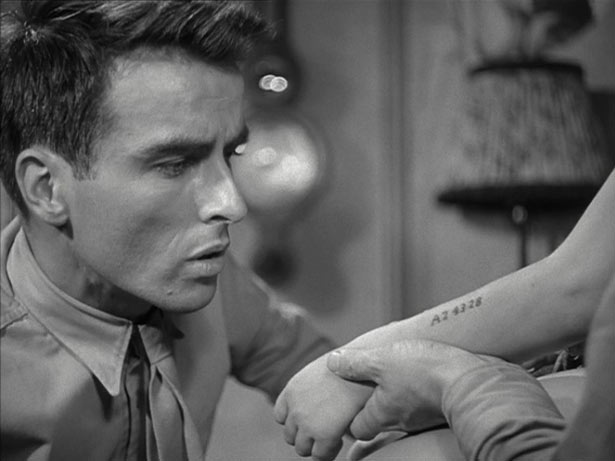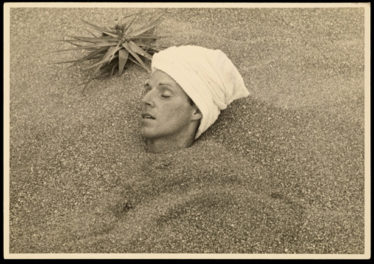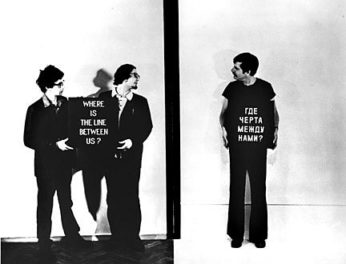
Montgomery Clift, Ivan Jandl, and Fred Zinnemann on the set of The Search (1948). Image courtesy of the Margaret Herrick Library of the Academy of Motion Picture Arts and Sciences. © Warner Bros.
From Casablanca to Saving Private Ryan, the horrors and heroisms of World War II have provided decades of cinematic material. However, as director Fred Zinnemann masterfully demonstrated, meticulous exploration of the human experience—both immediately before the war (The Seventh Cross, 1944), and after (The Search, 1948)—can be even more revealing.
The Seventh Cross screened last week as the opening film in the Getty Research Institute’s film series Fred Zinnemann: The Cinema of Resistance. The series continues tomorrow night with The Search, which offers one of the most memorable, and underrated, film experiences on the reality of post-World War II Europe. The film was one of the first to be shot amidst the ruins of German cities, including the devastated Nuremberg. It tackled the lingering fears left by war from a child’s nonconformist perspective, as only Zinnemann, himself a well-known nonconformist, could.
The literal search of the The Search is the great balancing act of a young, displaced boy, Karel (Ivan Jandl), who has come to associate adult interventions with the evils of the Nazis, searching his memories for clues to his mother; a mother losing hope in the search for her son; an army engineer (Montgomery Clift in his film debut, with a cooler on-screen presence than James Dean) making what he considers the only obvious choice as he takes the boy under his wing; and a United Nations worker (Aline MacMahon) trying to make everything right again. The search for a boy or a mother can come to an end, but the search within us all to find an end to inflicting harm on future generations does not.
A conversation with director Fred Zinnemann’s son, Tim Zinnemann, and Getty scholar Jennifer Smyth follows the screening. The search continues on April 17 with High Noon (1952) and on April 24 with Julia (1977).

Still from The Search (1948), directed by Fred Zinnemann. © Warner Bros.

Still from The Search (1948), directed by Fred Zinnemann. © Warner Bros.




Comments on this post are now closed.